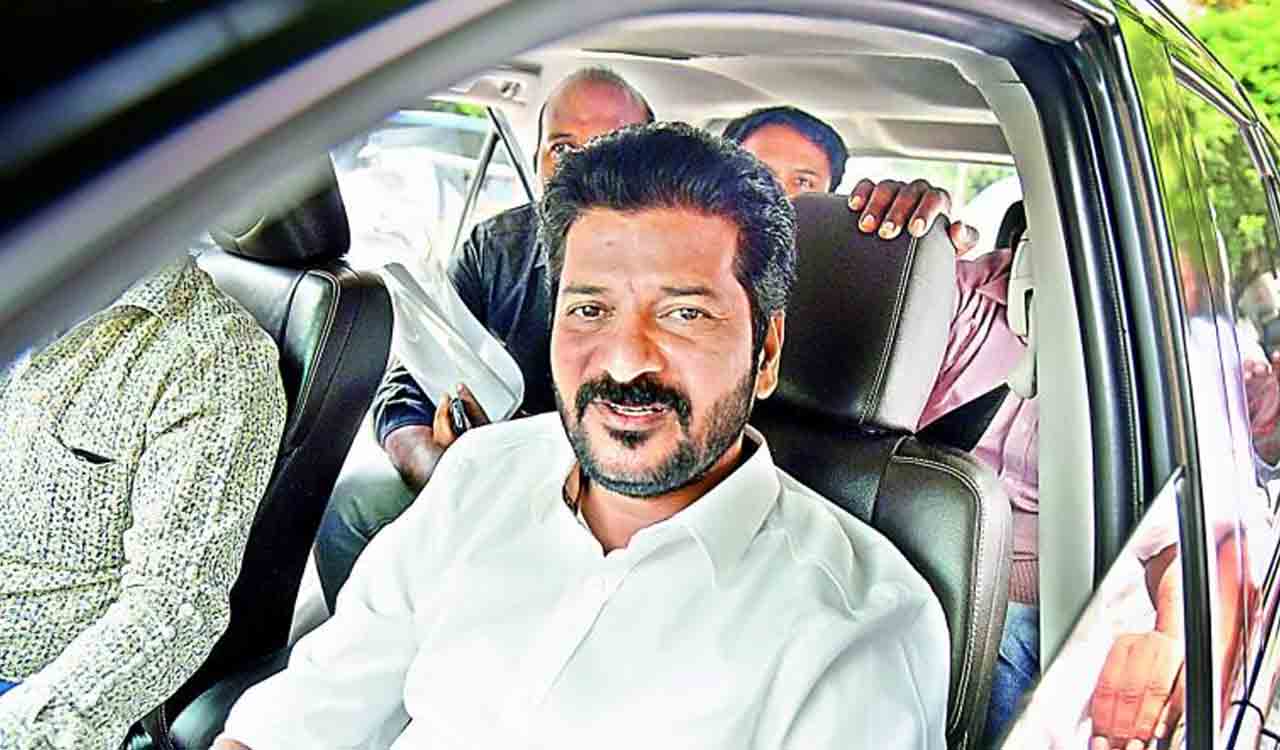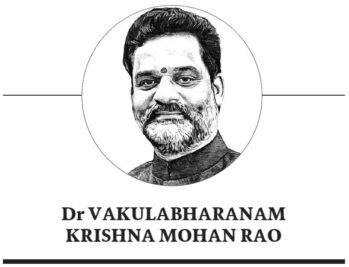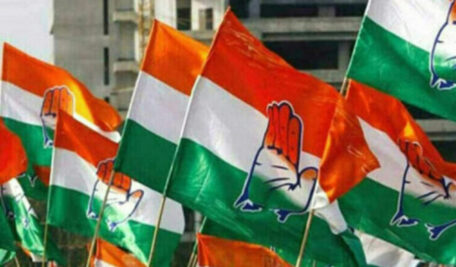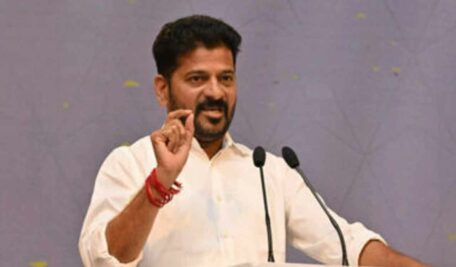Opinion: Revanth Reddy’s dharna in Delhi — Fight for BC rights or mere political show?
Turning a critical constitutional issue into a stage for political optics undermines democratic spirit — and sends a troubling message about government’s priorities

By Dr Vakulabharanam Krishna Mohan Rao
It has been over three months since the Telangana Legislative Assembly and Council unanimously passed the Bills providing 42 per cent reservations for Backward Classes (BCs). These Bills remain pending with the President of India.
Also Read
In this context, Chief Minister A Revanth Reddy has announced a dharna at Jantar Mantar in New Delhi, followed by a meeting with the President. But a serious question emerges: Is this dharna genuinely intended to secure Presidential assent for the BC reservation Bills, or is it merely aimed at winning the approval of the Congress High Command?
Legal experts argue that there are already well-established constitutional avenues for securing Presidential assent. Yet, instead of walking the path of law, the government seems to be indulging in political theatrics. This approach dangerously risks turning the sensitive issue of BC reservations into a mere platform for publicity rather than a serious legal and constitutional battle. The nature of these actions raises doubts about whether this is a principled fight for social justice or a calculated move for political mileage.
Disquieting Remarks
Amid these developments, some of the Chief Minister’s recent remarks have drawn sharp criticism. At one meeting, he described the Prime Minister as a “Converted BC” — a statement that goes far beyond political rhetoric and raises serious questions about the decorum expected from a constitutional functionary.
Similarly, his contradictory comments on Union Minister G Kishan Reddy reveal a startling lack of strategic coherence. At the release of Haryana former Governor Bandaru Dattatreya’s book, ‘Prajale Na Aathmakatha’ (‘People Are My Autobiography’), the Chief Minister referred to Kishan Reddy as a “very close and dear friend.” Yet, in a public meeting a few months ago, he sharply criticised the same Minister, questioning his “residential eligibility in Telangana.”
Such conflicting statements not only weaken the government’s moral authority but also fuel grave doubts about the seriousness of its intent. These inconsistencies further complicate the government’s political messaging at a crucial time.
Where is All-Party Delegation?
When Bills of this magnitude are stalled at the Rashtrapati Bhavan, the natural democratic course is to build consensus. The government should have officially invited all major political parties and led an all-party delegation to meet the President. Such a step would have significantly strengthened Telangana’s case nationally and lent much-needed credibility to its demands.
Instead, the Chief Minister chose to take along only select allies to Delhi. By deliberately excluding the Bharatiya Janata Party (BJP) and the Bharat Rashtra Samithi (BRS), the government has reduced a matter of public justice into a party-centric campaign. Turning a critical constitutional issue into a stage for political optics not only undermines the democratic spirit but also sends a troubling message about the government’s priorities. These choices make it clear that the focus has shifted from resolving the issue to projecting a political narrative.
Government’s Defence
The Congress government strongly rejects criticism, maintaining that it has taken all necessary steps. “We have done everything required under the law,” its leaders claim. “A comprehensive SEEEPC survey was conducted. A dedicated Commission headed by Busani Venkateshwar Rao was appointed for local body reservations. A Working Group, led by Justice B Sudarshan Reddy with experts, analysed the data. Both Houses of the Legislature passed the Bills unanimously, and we sent them to the President. If the President has not acted yet, is it our fault? Is it wrong to stage a dharna and meet the President?”
Moving forward transparently and lawfully is the only way to ensure that BC rights are permanently safeguarded
However, experts strongly disagree with this defence, pointing to glaring gaps in the legal process that render this claim hollow.
Are Processes Legally Sound?
A closer legal analysis exposes glaring procedural and constitutional lapses:
• Supreme Court guidelines: In Vikas Krishanrao Gawli (2021) and K Krishna Murthy (2010), the court categorically held that reservations in local bodies must be based on the recommendations of an independent, multi-member statutory commission. Telangana’s one-man Busani Commission, appointed by the Executive, blatantly fails this standard.
• Surveys and reports: The SEEEPC (Socio-Economic, Education, Employment, Political and Caste) survey was merely an administrative exercise by the Planning Department. Crucially, neither the SEEEPC survey report nor the Busani Commission’s report has been tabled in the Assembly or Council. These reports are also conspicuously absent from the public domain or official websites. Legally, once approved by the government, such reports must become public documents. This deliberate lack of transparency raises serious and unavoidable questions about the credibility of the data used to justify the 42 per cent quota.
• Presidential assent: The Bills were sent to the President under Article 31-C, but shockingly, no attempt was made to secure protection under the Ninth Schedule. As held in Minerva Mills (1980) and IR Coelho (2007), even laws protected under Article 31-C must pass the basic structure test. Without robust, transparent data and legally sound procedures, the Bills risk inevitable failure in judicial scrutiny.
• Tamil Nadu model: In sharp contrast, Tamil Nadu successfully retained 69 per cent reservations by relying on detailed surveys conducted by statutory commissions such as the Sattanathan and Ambasankar Commissions, extensive legislative debates, and the 76th Constitutional Amendment, which placed the law in the Ninth Schedule. Telangana’s approach stands nowhere close to such robust processes.
The continued secrecy around the SEEEPC and Busani reports is deeply alarming. BC reservations are not a party issue; they impact more than half the State’s population. Why keep these crucial reports hidden from the Assembly, Council, and the public? Without legislative debate and public scrutiny, how can the President be expected to grant assent? Transparency is not optional when policies of this magnitude are at stake.
The Unused Legal Route
Another glaring failure is the government’s reluctance to pursue judicial remedies. Under Article 143(1), the President has referred 14 questions on reservation-related issues to the Supreme Court for its advisory opinion. However, this advisory process is non-binding.
The state can still file a writ of mandamus under Articles 32 or 226, asking the Supreme Court to direct the President to decide on the Bills within a reasonable timeframe. In its landmark ruling in State of Tamil Nadu v. Governor (2025), the Supreme Court held that constitutional authorities like the Governor or President cannot deliberately delay action on Bills for indefinite periods and must act within three months. By failing to approach the court, the Telangana government has missed a crucial constitutional opportunity – a lapse that cannot be ignored.
What Must Be Done Now?
To secure BC reservations in a legally sustainable and unassailable manner:
- Conduct surveys and prepare reports through independent, multi-member statutory commissions.
- Table SEEEPC and Busani reports in the Assembly and Council for legislative debate.
- Secure protection under the Ninth Schedule through a Constitutional Amendment.
- Immediately file a writ of mandamus to compel the President to act within a time-bound framework.
No matter how much political capital is invested, if the government ultimately accepts the need to restart the process from scratch, it would at least amount to a democratic decision. Moving forward transparently and lawfully is the only way to ensure that BC rights are permanently safeguarded — not through political spectacle, but through constitutional action.

(The author is former Chairman, Telangana State Backward Classes Commission)
Related News
-
Anupama Parameswaran signs psychological thriller, shoot begins in May
1 min ago -
Karimnagar court bomb scare: Police confirm false alarm
7 mins ago -
Secunderabad Cantonment MLA boycotts board meeting, demands immediate polls
25 mins ago -
Month-long SSC timetable sparks debate over student focus
25 mins ago -
Three years on, Project Cheetah records 38 cheetahs across Kuno, Gandhi Sagar
28 mins ago -
Telangana’s vehicle scrapping scheme falters as old vehicles stay on roads
41 mins ago -
Religious scholars call for boycott as shopping fairs threaten sanctity of Ramzan
1 hour ago -
AIFF ties up with Ryan Group to roll out football, futsal programmes in schools
1 hour ago




